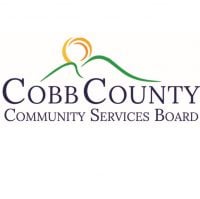Purpose
Drug Rehab Center in Mcdonough, Georgia
- Substance Abuse
Mcdonough Treatment Center offers aftercare support and outpatient treatment for substance abuse with evidence-based therapies tailored to individual needs, including Cognitive Behavioral Therapy (CBT), Dialectical Behavioral Therapy (DBT), Trauma Therapy, and Motivational Interviewing.
About Purpose in Georgia
Purpose in Mcdonough, Georgia is a full-service addiction and substance abuse treatment center, specializing in the care of individuals suffering from substance use disorder. Their facility provides comprehensive outpatient and residential care to individuals from all walks of life. They utilize evidence-based therapies, along with holistic practices, to provide comprehensive and compassionate care to those on their road to recovery. With a team of knowledgeable, experienced professionals, Purpose offers a range of customized treatment programs, from group and individual therapy to spiritual counseling, to suit each individual's needs.
At Purpose, clients can expect individualized treatment plans, tailored to their unique needs and life situations. They offer a range of evidence-based therapies such as Motivational Interviewing, Cognitive Behavioral Therapy, Dialectical Behavioral Therapy, Mindfulness, and Family Therapy to address the underlying issues of addiction. Through the use of these therapies, Purpose works to equip clients with the necessary tools and resources to build a strong foundation of recovery and face their challenges head-on. In addition to treatments and therapies, Purpose provides comprehensive addiction aftercare services, like sober living homes, family support programs, and relapse prevention resources.
Purpose has earned the Joint Commission’s Gold Seal of Approval, which is the highest level of accreditation available to addiction treatment facilities. They have also been recognized by the Georgia Association of Addiction Professionals and are affiliated with the National Council for Behavioral Health. They have also been awarded for their dedication to providing quality care and have received the Georgia Drug and Alcohol Prevention Excellence Award. Purpose is dedicated to providing the highest quality care available to help individuals on their journey to a better life in recovery.
Genders
Ages
Modality
Additional
Conditions and Issues Treated
Substance Abuse Treatment is important when getting sober, as it helps addicts learn the skills they need to live a clean life. There are many different kinds of recovery treatment, including but not limited to medication-assisted therapy, behavioral therapeutic approaches, self-help groups, and counseling. Each treatment has its benefits that help addicts recover.
Counseling can help addicts learn the skills they need to live sober lives. It can be used to treat underlying mental health issues, like depression or anxiety, that could lead to relapse. Counseling can also help people find work, deal with family problems, and learn to manage living without drugs.
Levels of Care Offered
This center offers a variety of custom treatment tailored to individual recovery. Currently available are Aftercare Support, Outpatient, with additional therapies available as listed below.
Alcohol or drug addiction, or co-occurring disorders, are treated in an outpatient program. The patient must attend therapy and other programs at the facility but can return home each night.
Outpatient treatment allows recovering addicts to live at home while receiving addiction treatment. Outpatients can attend group sessions for a few hours per week. Outpatients may also continue to work full time and study/attend school without interruption if they choose.
The accomplishment of completing a drug or alcohol treatment program is just the first step. Once that is complete, aftercare support comes into play. This includes helping people adjust to life without substances outside of guidelines with assistance like getting sober living accommodations and career counseling and AA/NA programs for those who are struggling between sobriety or want continued help in maintaining it once they have completed their initial rehabilitation at an addiction facility.
Aftercare comprises services that help recovering addicts readjust to normal day-to-day activities while working on specific issues. These problems include psychiatric issues, family problems caused by substance abuse, continuing education pursuits if desired during rehab, etc. These can last up to one year+ depending on what’s needed most urgently upon completion of earlier stages.
Therapies & Programs
Trauma therapy is a form of therapy used to help people process and understand past traumas. This can help struggling addicts, as many people turn to drugs or alcohol to mask the pain of their past. Trauma therapy can be done in several ways, such as through visualization, discussion, and writing down thoughts and feelings. The goal is to help the individual understand why they are having problems coping with certain situations and changing how they think and react to things. This is often done in tandem with other therapies to treat the underlying issues associated with addiction.
The idea behind trauma therapy is that while some people can experience traumatic events and not have lasting psychiatric symptoms, many others will. In these cases, memories get hidden from consciousness but continue to influence how the person processes and copes with things in their life. They may avoid situations that resemble what happened or become suddenly angry or irritated to a situation that reminds them of a past event. With the help of a therapist, people can go back over memories and experiences. This helps them understand why they are having problems coping with certain situations and changing how they think and react to things.
This type of cognitive-behavioral therapy helps people understand how their thoughts, behaviors, and feelings are interconnected. It can help patients with borderline personality disorder gain control over their actions and stop self-harming thoughts and attempts.
Cognitive Behavioral Therapy is a type of psychotherapy that helps people address the thoughts and behaviors that may have led to their addiction. It also helps change negative thoughts into positive ones and promotes healthy communication between addicts and those around them. CBT is an efficient treatment for individuals suffering from all sorts of addictions.
Cognitive Behavioral Therapy (CBT) focuses on the underlying thoughts and behaviors that caused the problem of addiction in the first place and may cause a relapse. Negative feelings are common in drug abuse disorders, but they can lead to co-occurring disorders if not recognized. CBT involves strategies that help to change the behavior pattern by restructuring negative thoughts into positive ones. It helps to remove these feelings, and it provides long-term benefits. Also, CBT promotes self-awareness, self-control and can be administered as a mono-therapy or as part of combination therapy.
Additional Details
Specifics, location, and helpful extra information.
Mcdonough, Georgia 30106 Phone Number(770) 948-9088 Meta DetailsUpdated November 25, 2023
Staff Verified
Purpose Patient Reviews
There are no reviews yet. Be the first one to write one.
Mcdonough, Georgia Addiction Information
Prescription opioid use has caused a large increase in the total amount of overdoses in Georgia. Almost 12% of the Georgia population uses illicit drugs each year, and slightly over 3.5% also abuses alcohol at the same time. This does not include those who binge-drink at least once a month, which includes 20% of all Georgians.
The drug addiction problem in McDonough, Georgia, is relatively severe. Over 1,600 drug-related arrests in the area in 2016, this is alarming as only 132,000 people are living in McDonough. Common drugs of abuse are opioids (heroin and prescription painkillers), and marijuana. There are several drug and alcohol rehab centers in McDonough, GA. Drug treatment can vary depending on the facility, but it typically involves detoxification, counseling, and support groups.
Treatment in Nearby Cities
- Dahlonega, GA (61.5 mi.)
- Flowery Branch, GA (48.5 mi.)
- Ball Ground, GA (38.4 mi.)
- Stapleton, GA (133.2 mi.)
- Dublin, GA (135.2 mi.)
Centers near Purpose




The facility name, logo and brand are the property and registered trademarks of Purpose, and are being used for identification and informational purposes only. Use of these names, logos and brands shall not imply endorsement. RehabNow.org is not affiliated with or sponsored by Purpose.

